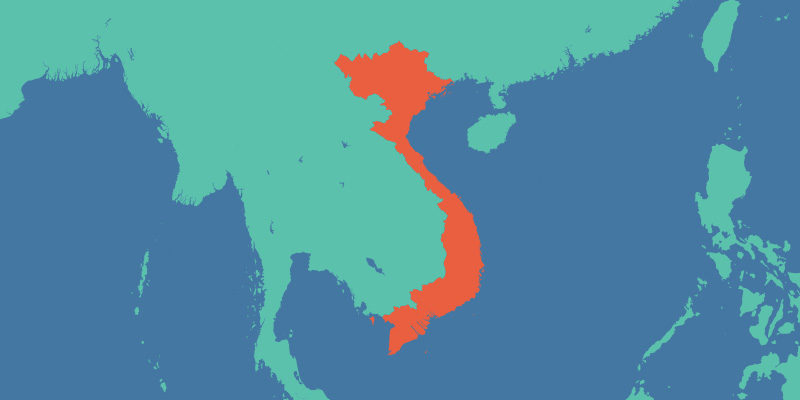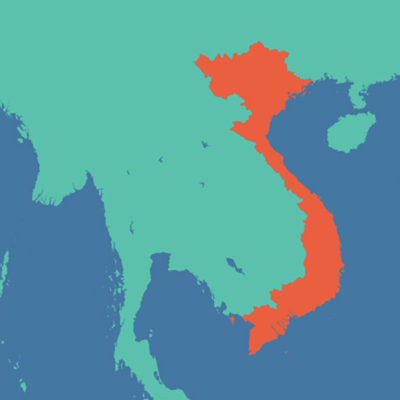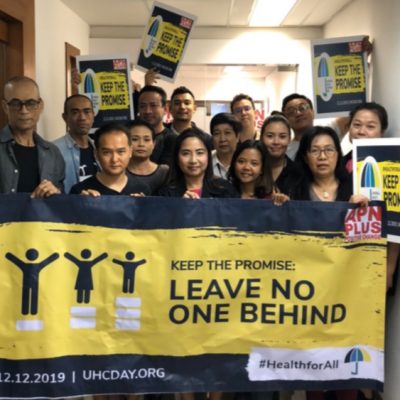
Patents on key HIV, Hepatitis C and TB drugs are preventing universal access in Vietnam. Our partner, VNP+, is advocating for a fairer, pro-health system.
An estimated 246,793 people are living with HIV in Vietnam (August 2018). 209,754 people have been diagnosed and just over 60% are on treatment. New HIV infections have reduced by two fifths from the epidemic’s peak in the early 2000’s, however, around 40% of people living with HIV remain without treatment.
The government’s plan to achieving universal health coverage (UHC) is through its health insurance scheme. It is achieving the goal for 90% of people living with HIV to be enrolled with a social health insurance card in 2019 and to be reimbursed for the total cost of treatment, with full transition to social health insurance for HIV treatment expected by 2020. Currently the procurement of ARVs is via insurance; centrally procured drugs through the national HIV program; PEPFAR and the Global Fund (GF). After 2020, current external funding for ARVs will cease and people will rely 100% on insurance. (Based on current GF funding cycle, they may also be procuring beyond 2020 if the grant is convinced to continue procuring ARVs.)
Barriers to achieving universal access for HIV, as well as Hep C, TB and other treatment medicines and commodities, include Vietnam’s obstructive patent laws, which enables unmerited monopolies and the ensuing high prices of drugs. Our partner, VNP+, believes the health insurance scheme is a good idea, but achieving it requires smooth implementation which requires time and monitoring.
There are no national statistics, but the estimated number of people are living with Hep C in Vietnam is approximately one million. There is also no data available on treatment coverage, and the price of treatment is very high, ranging from $195 USD – $597 per person per month. Under the health insurance scheme, 50% of cost the of Hep C treatment is reimbursed for direct-acting antivirals (DAAs), i.e., daclatasvir, sofosbuvir, sofosbuvir/ledipasvir, and sofosbuvir/velpatasvir.
There are estimated to be over 100,000 people living with TB (2018). 55,438 people completed treatment in 2017 ( 87.17% of those were cured). Patents have been filed on two of the newer TB drugs, bedaquiline and delamanid, key drugs for multi-drug resistant (MDR) TB. If monopolies are achieved on these medicines, it will likely result in them being unaffordable, which would have a detrimental effect on eliminating TB in the country.
Our focus
Our partner, the Vietnam National Network of People Living with HIV (VNP+), is working to achieve access to optimal medicines for all people living with HIV, Hep C and TB.
To achieve this, the network is focused on removing intellectual property (IP) barriers that hinder access to life-saving treatment.
VNP+’s priorities include:
- Building a clearer picture on people affected by Hep C and advocate for strategies to increase affordable, accessible treatment, to work towards eliminating the virus.
- Patent oppositions. Build on VNP+’s previous success on preventing unmerited monopolies to help introduce competition and reduce the price of key HIV, Hep C and TB drugs.
- IP law reform is expected in 2019. VNP+ is advocating for a pro public-health patent law, to prevent future unmerited monopolies. Guidelines have also been introduced on the use of compulsory licensing, and the network will urge the government to use this right to tackle public health crises whne necessary.
- Working to prevent profit-motivated TRIPS Plus measures in free-trade agreements (FTAs), including the EU, TPPA and RCEP agreements.
Last updated May 2019.



